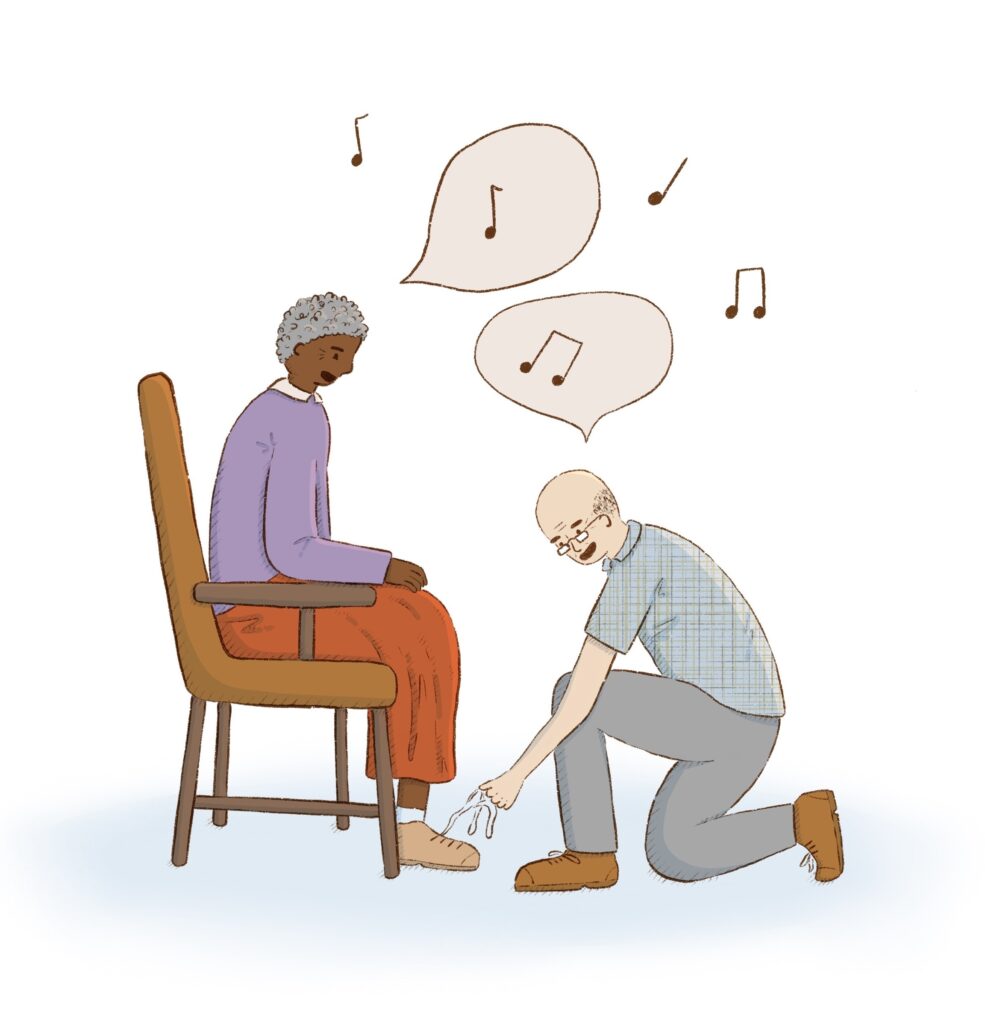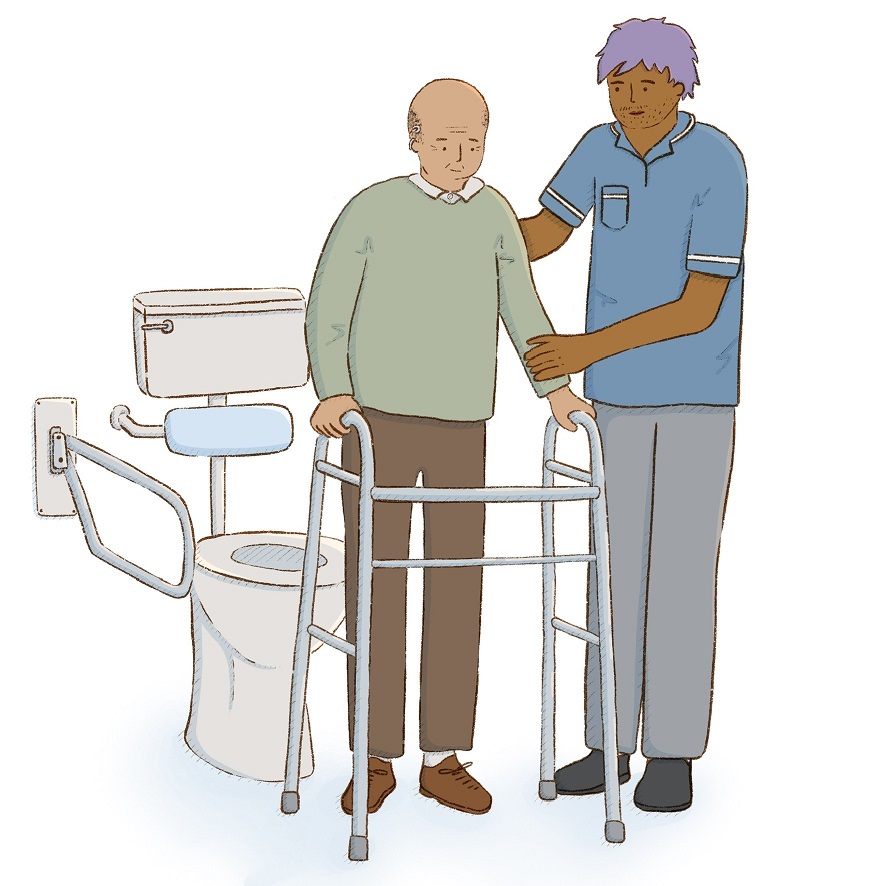Helping family carers to provide personal care for someone living with dementia
This website provides information and advice for family members and unpaid carers who are supporting a person living with dementia. It has a particular focus on personal care which covers a range of topics such as: helping someone with washing, bathing, and using the toilet; teeth, hair and nail care; dressing, shaving and personal appearance; and hearing and vision.

The information was developed with family carers and includes hints, tips and strategies that they have kindly shared with us. Most of the information is available to download as short booklets or information sheets, and is supported by short video clips of carer experiences.
Any mention of a product or item within the content of this website should not be seen as an endorsement, but an example of what might be available to carers.
Support for family carers
‘Personal care’ can mean different things to different people, and covers quite a wide range of activities that a person with dementia might need help with, including activities that may be described as ‘intimate care’. When we talk about personal care, often we think of the most intimate kinds of care such as helping someone to wash, bathe or shower, or to go to the toilet, but it can also cover helping someone to take care of their personal appearance, get dressed and undressed, look after their hair, skin and nails, and help with eating and drinking.
It’s important to recognise that some of these activities may be easier to undertake than others: some may be straight forward and pleasant to help with, but others may feel demanding and overwhelming, both physically and emotionally. There may be some that family carers feel would be ‘crossing a line’ with the person they are supporting, or that people feel they are simply not able to do for their own individual reasons.

People undertaking a caring role often benefit from discussing this with health and care professionals and others, so that they feel supported in making decisions regarding what they can and can’t manage. Often people may feel out of their depth with providing personal and intimate care and may find it a difficult subject to talk about. Professionals can help by acknowledging the physical and emotional strain this may have on an individual, and providing the opportunity for people to talk open and honestly, without judgment.
There are three main sections on this website aimed at providing help and support to family carers
Personal care and dementia – the research
This section provides some background information about the research project behind this website, and helps to explain some of the terminology used.
General issues in providing personal care for people living with dementia
An A-Z of different issues and challenges that family carers may encounter relating to personal care.
Specific areas of personal care
Information and top tips relating to key areas that family carers have told us can be a struggle for them.
How can professionals help when it comes to personal care?
Time and time again, family or unpaid carers tell us that they get very little help and advice on providing personal care and support for people living with dementia. As a paid professional you can use the resources on this website to provide advice, deepen understanding and open up discussions about caring topics. In each section you will find useful leaflets and booklets that can be downloaded and shared with family carers. These can also be useful in starting conversations about topics that people may find it difficult to talk about. The resources here can also be useful in support groups for family or unpaid carers, or in planning training and education sessions.
Importantly you can use the resources here as part of the Carers Assessment of needs and ensuring that carers have access to financial and practical support.


The Crossing the line project was funded by the National Institute for Health and Care Research (NIHR) under its Research for Patient Benefit (RfPB) Programme (Grant Reference Number NIHR202970)

Contact us: dementia@worc.ac.uk
Thanks to everyone who contributed so openly and generously to the Crossing the Line project. A full list of contributors is available.
The illustrations used on this website are by Rachael Brazell and the video clips are thanks to Macreavy Media.


